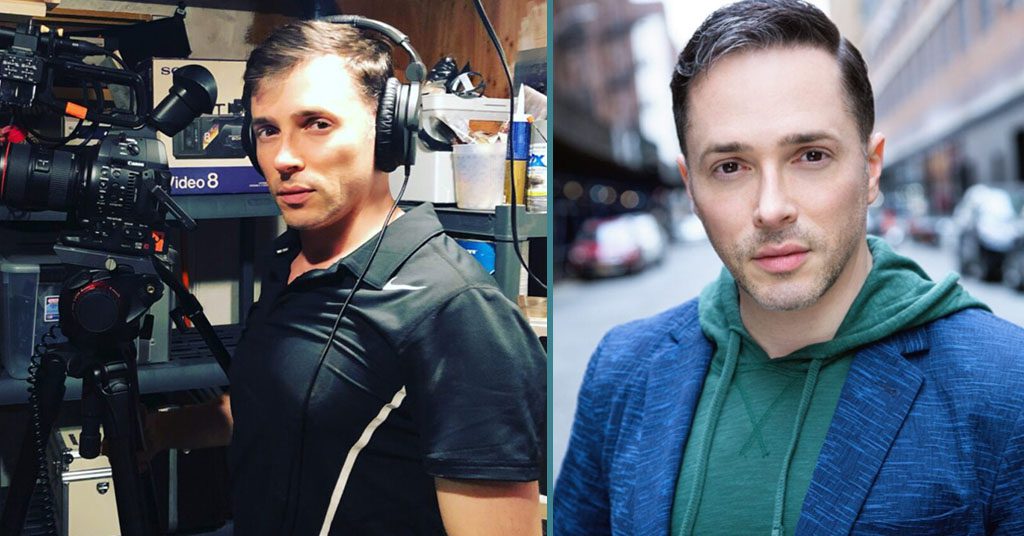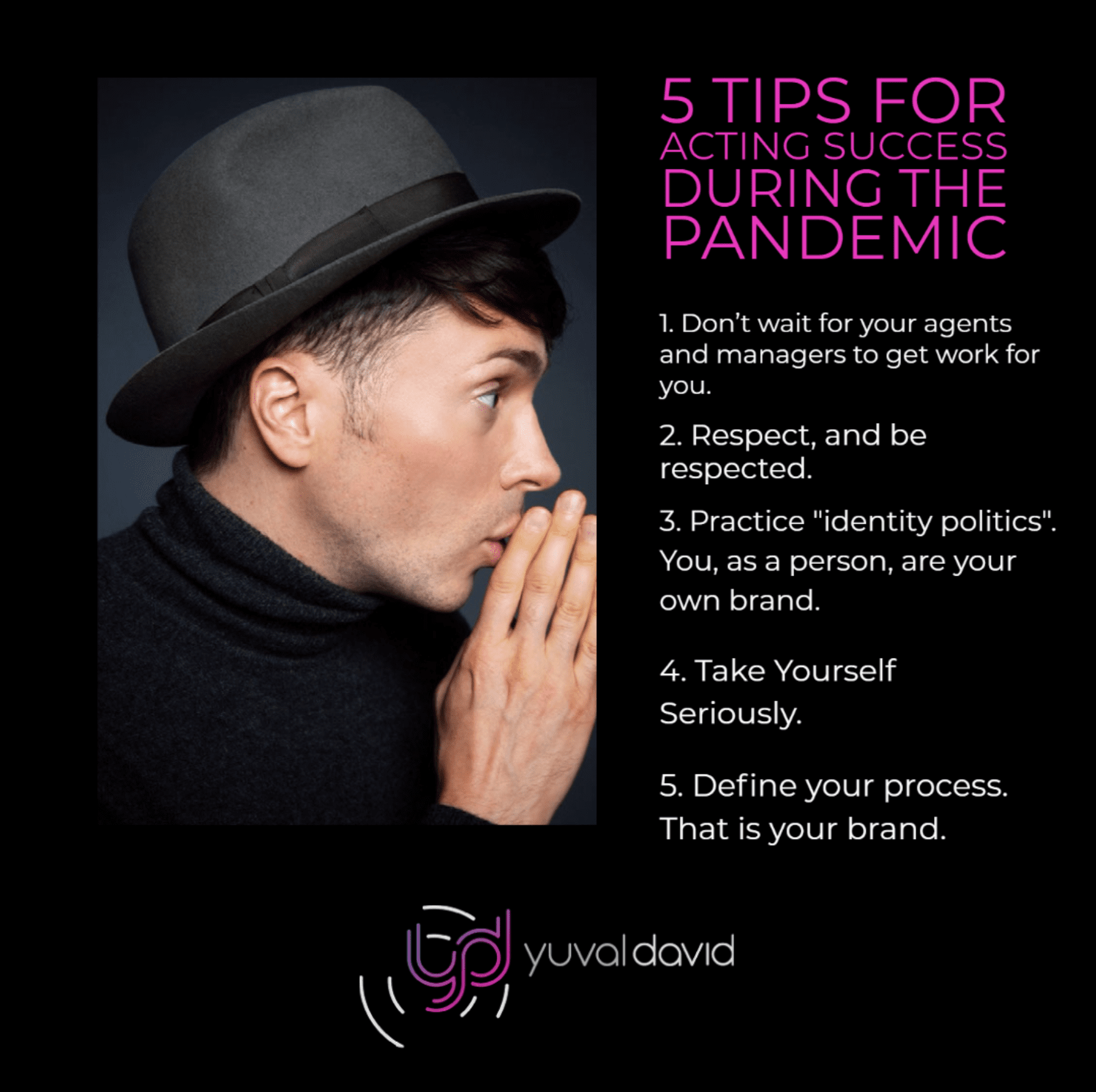
Yuval David is an out American actor, filmmaker, and activist. We’ve covered his impressive work before, including his role as Matvey Sokolov in the television series Madam Secretary, and roles on The Michael J. Fox Show, Disney’s Beauty and The Beast, What Would You Do? and more.However, among Yuval’s most acclaimed and socially conscious works is One Actor Short — a guerrilla filmmaking project he started in the streets of New York City and production in Washington, D.C., aimed at uniting the world in a time of rising divisiveness.
Yuval joined me for an inspirational 2-part episode of Core Issues to kick off the new year. In our discussion, we touched on a range of essential topics of the day. Yuval also explains his mission with One Actor Short in which he assembles a diverse cross-section of unsuspecting people – all of them strangers – cast as actors in impromptu pop-up film productions.

Read and listen to our newest interview with Yuval David:
Corey Andrew: Yuval, congratulations on your amazing project, which kind of delves into bringing people together versus tearing people further apart. So tell me a little bit about One Actor Short, why you created it, and now, how it’s been transitioning from New York City to doing it now in D.C. So talk a little bit about that project, please.
Yuval David: One Actor Short started as a way for me to play. Uh, it’s a very playful concept embracing the elements of guerrilla theater, which I’ve always, truly always been into since I was a kid, which is creating theater for an audience that doesn’t expect to be an audience. As a content creator, I wanted to flip that and create film content with people who didn’t expect to to act in a film. What does that mean if I pull people into it? They’re not only an audience anymore; they’re not just watching what I’m creating; they’re actually participating in it. So much of what I do is about collaboration and inclusion. Even as an actor and as a director, I share narratives. I share characters. My goal is to make these characters and narratives resonate with the audience.
How can an audience member resonate with a character who might be very different than they are? So it’s about finding that intersection. I do this throughout my work. How can I engage the audience even further and bring them into the process? So that’s how One Actor Short was born. I go out with a full film crew, into public spaces, two camera operators, two audio sound recordists, however many PAs that I’m able to get that day. And I go to public spaces, and I invite random strangers to immediately and spontaneously act in a film.
So it’s also very much treated as an experiment. It starts out with a hypothesis, “Hi, I’m Yuval David today. I’m here at this location. I’m here with my crew. Let’s see what happens if I approach random strangers with a full film crew and invite them to act in a film.”
Corey Andrew: And so they take dialogue that you’ve written? Or are they improvising?
Yuval David: It’s guided improv because they’re on the spot. And when I approach these people who agree to take part of it, I let them know that I’m not going to take up more than maybe five to 10 minutes of their time. And I really try to work quickly because people are walking, they have somewhere to go, especially in New York City. I invite them to very much participate in creating a character. What type of character would they like to play. At the start of each filming day. I have no clue what type of film I’m going to create. I don’t know. I have to approach it through the concept of improv, improv comedy, which I’ve done for decades. I get up on stage. I get the suggestions, now what am I going to do?I get these random strangers at the start of the day. I say, uh, okay, well, right now we’re in this location. What type of character would you like to play? That also helps inform what type of film we’re going to create.
The first interactions that I have set the tone for the rest of the film. So the first people very much affect the rest of the process. The latter people end up becoming the filler content or the filler material. But if somebody gives such an amazing performance or just does something so unique, that can completely shift the entire film and I’m open and receptive to that.
That’s a very long description of what One Actor Short is. One Actor Short is improv-based filmmaking going into public spaces and inviting random strangers to take part.
Corey Andrew: And as to the “why?” is the purpose then to create a place where strangers can interact without the deluge of all the stuff we’re inundated with today— all the negativity in the news, headlines, and divisiveness, political arguments. I mean, you know, you can be at a bar and have a great time just meeting someone. And they say one thing about who they voted for, and everything goes south, right?
Yuval David: I create One Actor Short because it challenges me artistically. I also create One Actor Short because I want to prove to everybody that they deserve having the cameras pointing at them and the microphones capturing their sound. Everybody is fabulous. Everybody is interesting. Everybody is compelling. And if they’re nervous about it, I’m also the type of artist, actor, director who loves vulnerability, loves the awkwardness because that’s real.
Perfection — I don’t believe in it. Imperfection — I love. The hiding of imperfection makes me very uncomfortable. The exposing of imperfection makes me breathe deeper. It makes me more grounded. And I want to just let people know how wonderful they are and how important it is to play, especially in our adult lives. We have all the stressors of life, especially within these last two years of this sociopolitical situation we’re in. But really, it’s been for many, many years. How can we embrace the concept of free play, being childlike, not childish, right? There’s a big difference between being childish and childlike. But that childlike abandon, the childlike adventurousness of just being playful and meeting somebody and saying, “Okay, hey, do you want to be my friend? Great. We’re friends; let’s play.”
Corey Andrew: Without all the other stuff attached to it.
Yuval David: Right, without all the other stuff. And it also provides me an opportunity to cast people who aren’t often seen in those types of roles. For example, I’ve had a black trans woman in a leading role. Well, okay, fine. Now we’re seeing more of that, but I did that before it was cool. So to have somebody like that or to have a woman in the warrior role or an Asian person, whatever it is, it’s about inclusion. Ultimately, it isn’t about their race, their sexuality, their gender, their religion, their nationality. It’s just about people. Let people be people and give them the space to playfully explore their fantasies, who they are, and who they want to be. And it’s just so exciting. And one of the beautiful things, especially as I’m editing the content with my post-production team, is to see the bodyline language that the person had on camera.
When I first started speaking to them and comparing it to the body language, when we finished filming with them and how they walk off, and you can see that they walk taller, they have, you know, a sway to their step, more of a swagger. That’s beautiful. My goal is to entertain, uplift, and inspire my audiences and entertain, uplift, and inspire everybody who works, collaborates, and creates with me. And also to entertain, uplift, and inspire myself — because I need it too.

